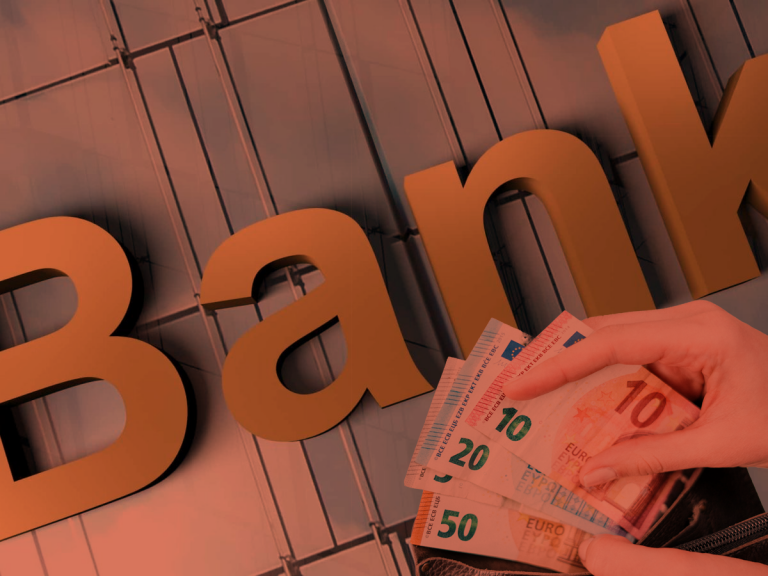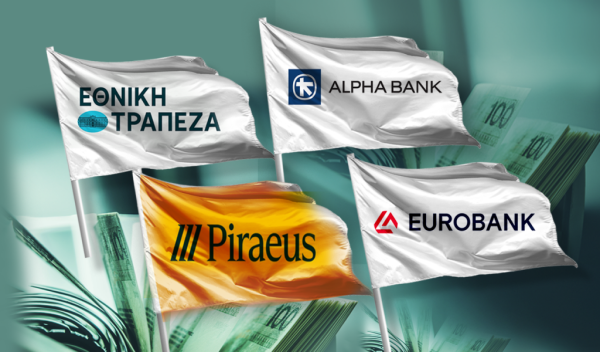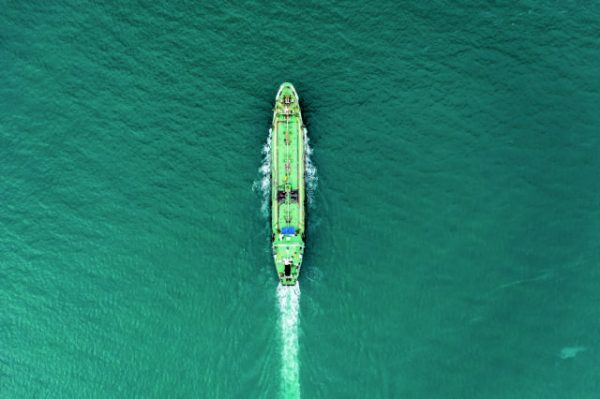
Deutsche Bank places Greek banks at the top of the choices of the Eurozone banks. According to a relevant analysis by the bank, Greece stands out and is expected to continue to stand out thanks to the strong prospects of the economy, boosted by the Recovery Fund and the upward trajectory of ratings by the agencies, while the increase in lending will be the strongest in the region, supporting the sector.
The shares of Alpha Bank, Eurobank, National Bank and Piraeus Bank are the names he chooses among the shares of the European south, for which he recommends a buy, as they comply both with the course of the country and with the advantages of the sector. The list of Greek stocks includes the Italian bank BMP, the Portuguese Milennium BCP and the Spanish Sabadell.
In its latest analysis, the German bank upgraded the shares of Eurobank (buy recommendation, target price 1.70 euros from 1.45 euros) and Piraeus Bank (buy recommendation, target price 3 euros from 2, 95 euros), while keeping the buy recommendations for National Bank, but increasing the target price to 6.15 euros from 5.10 euros and for Alpha Bank to 1.60 euros from 1.55 euros.
Deleveraging and borrowing
Greece has suffered the most deleveraging in Europe for more than a decade, mainly due to a reduction in non-performing loans (which at one time accounted for nearly half of loans) and a lack of demand. This remains an issue in mortgages, where declines remain significant, around -4% year-on-year, and has led to a small weighting of total loans relative to other countries.
However, corporate lending is now growing at a near double-digit rate and is expected to continue so, allowing total loans to be in positive territory year-on-year (around +3%). Overall, hopes are based on a revival in investment, with GDP growth well above the EU average, for which EU funds should remain a large contributor. “Even if the multipliers for the total injection of around €70 billion until 2026 are likely to remain relatively low, the overall impact (given the country’s low leverage) will undoubtedly be strong,” the bank explains.
“As a result of our analysis, we confirm our previous position that the volume boost from NGEU funds is not going to be a material factor in most cases, with Greece likely to be the main beneficiary. The importance of the NGEU will be much less in Portugal, Italy and, above all, Spain, where the fight against deleveraging is likely to last longer than in the other southern European countries,” continues DB.
The details
As Deutsch Bank notes, while the resilience of European economies has been better than initially expected, with most EU countries having recovered to pre-Covid GDP levels (except Spain, which is likely to close the gap in Q2 quarter), the risk of high inflation and economic deterioration due to higher interest rates has reignited fears that southern European countries could once again become the weakest link in the EU. Sovereign risk is seen as a potential negative factor for these countries, and therefore for their banks. Looking at the details Deutsche Bank finds the following:
-Government bond spreads continue to perform well (especially in Greece, Portugal and Spain, while Italy poses the main question mark). In fact, Greece has been the best performer of late thanks to positive economic developments and recent credit rating upgrades, approaching investment grade, with its recovery allowing many long-term investors to start investing in Greek bonds for the first time. time after a very long time, leading to cheaper financing in the future.
– the potential need to reduce budget deficits would pose more of a threat in the form of an economic slowdown than a direct impact on banks’ balance sheets or capital due to their direct exposure to government bonds, and
– Southern European economies are expected to be among the best performers in 2023-2025, which is supportive of their ratings (only Italy faces a slight threat).
Latest News

German Ambassador to Greece Talks Ukraine, Rise of Far Right & Tariffs at Delphi Economic Forum X
Commenting on the political developments in his country, the German Ambassador stressed that it was clear the rapid formation of a new government was imperative, as the expectations across Europe showed.

Athens to Return Confiscated License Plates Ahead of Easter Holiday
Cases involving court orders will also be excluded from this measure.

Servicers: How More Properties Could Enter the Greek Market
Buying or renting a home is out of reach for many in Greece. Servicers propose faster processes and incentives to boost property supply and ease the housing crisis.

Greek Easter 2025: Price Hikes on Lamb, Eggs & Sweets
According to the Greek Consumers’ Institute, hosting an Easter dinner for eight now costs approximately €361.95 — an increase of €11 compared to 2024.

FM Gerapetritis Calls for Unified EU Response to Global Crises at EU Council
"Europe is navigating through unprecedented crises — wars, humanitarian disasters, climate emergencies," he stated.

Holy Week Store Hours in Greece
Retail stores across Greece are now operating on extended holiday hours for Holy Week, following their Sunday opening on April 13. The move aims to accommodate consumers ahead of Easter, but merchants remain cautious amid sluggish market activity.

Green Getaway Ideas for Easter 2025 in Greece
Celebrate Easter 2025 in Greece the sustainable way with eco-farms, car-free islands, and family-friendly getaways rooted in nature and tradition.

Civil Protection Minister Details Summer Firefighting Plans at Delphi Forum
At the 10th Delphi Economic Forum, Minister of Climate Crisis and Civil Protection Yiannis Kefalogiannis discussed Greece's plans for the upcoming fire season.

How Shops and Markets Will Operate During Easter Holy Week
The Easter holiday schedule has been in effect since April 10, with retail stores open Palm Sunday, and most supermarkets also operating to meet consumer demand for Easter shopping

Why Is the French Aircraft Carrier Charles De Gaulle in Piraeus?
Docking in Piraeus after a four-month deployment in the Indo-Pacific region, the admiral of the aircraft carrier the Charles de Gaulle says, "Greece is our best partner in the Mediterranean."








































 Αριθμός Πιστοποίησης
Αριθμός Πιστοποίησης